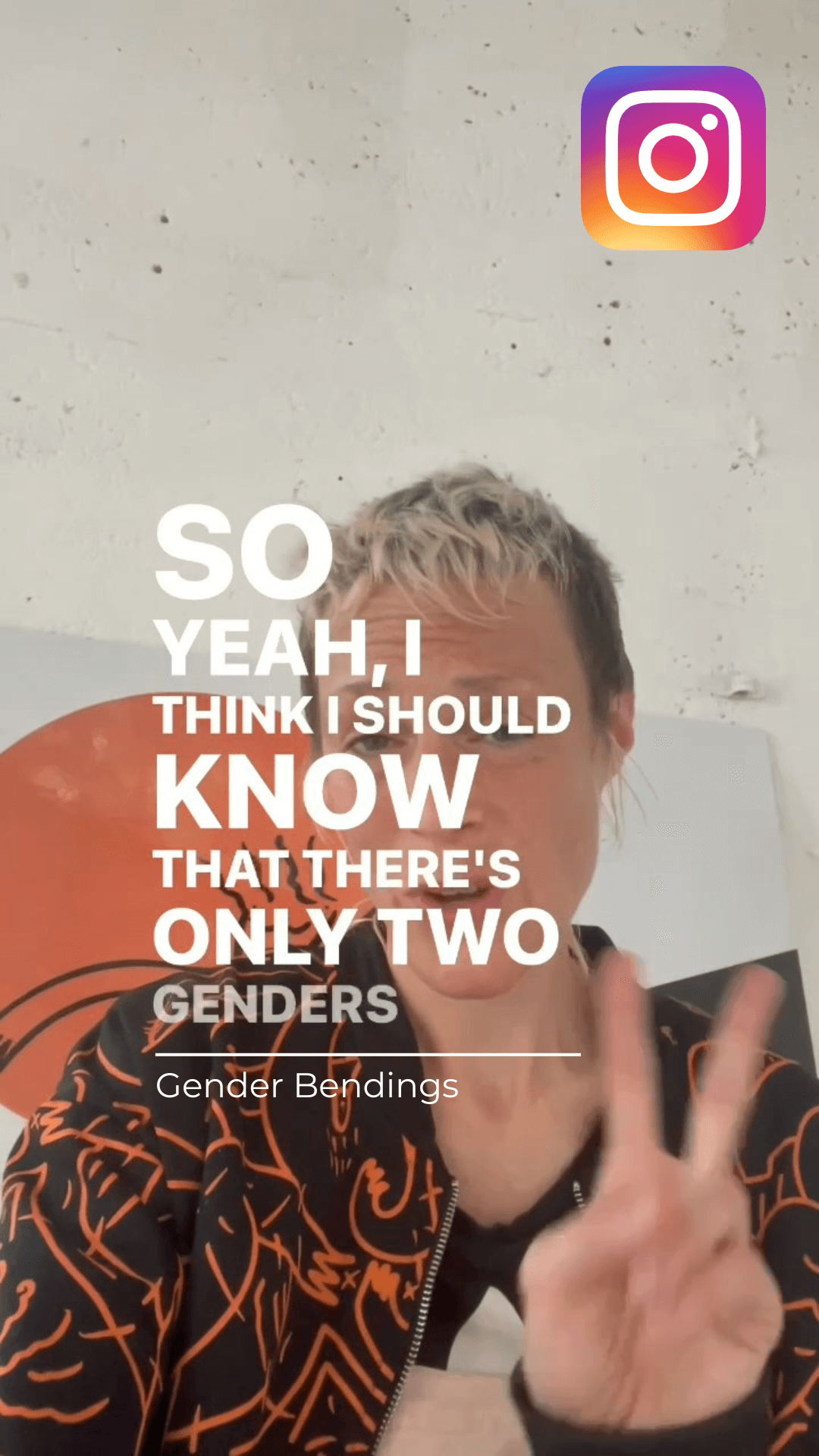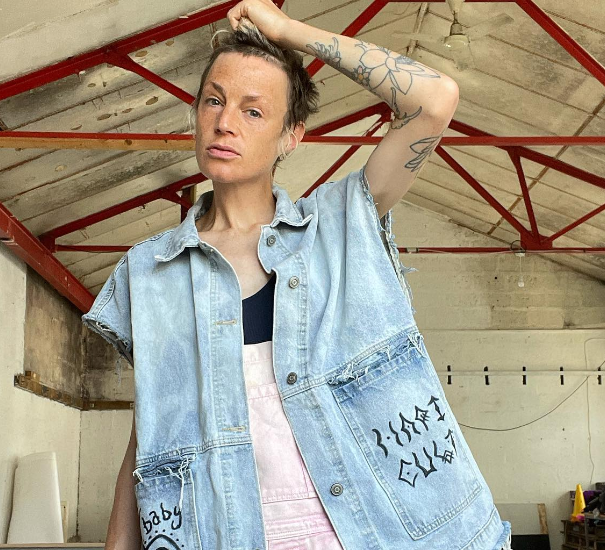I didn't know coming out existed
Intersex coming out stories are as unique and varied as any others, each one a personal and meaningful moment in someone’s life story. And within the LGBTQIA+ community, there are so many stories to be told.
I grew up not even realising that coming out was an option. Having never been given the word intersex, I didn’t even know what to come out as! I just felt that I must never tell a soul my shameful secret or I would lose everything and everyone I loved.
Thankfully, this was not the case at all! In fact, I gained so much – from a new community, to a new purpose in life – and I began the journey towards learning to love myself (the greatest journey of all!)
Explaining 'what' we are
That’s not to say that I didn’t experience my fair share of hate and loss, in many ways. These issues are very real and so it is absolutely valid to question how, when, and with whom to begin coming out safely.
Education around intersex bodies has been pretty much completely overlooked and therefore, even though we make up 1.7% of the population, many people still don’t realise we exist, or are confused about ‘what’ we are.
This adds so much additional labour, explanation and work to our moments of coming out!

The alternative isn't an alternative
However, as someone who has been through this I can tell you, it is not half as much work as acting out the charade of being someone that you’re not for the rest of your life. Phew! That IS some work – and trust me, the mask really starts to feel heavier, more painful, and harder to keep on, the older you get.
So how do you come out as intersex?
Who do you tell?
How do you set boundaries on information shared?
Are you willing to educate others on it?
The first step for some can be telling someone they feel very close to and safe with. If you have friends who are gender fluid, non binary or gender queer they might be great to open up to – or if you have family members or a best friend that you trust, regardless of their gender, then that can be great too.
I started by experimenting with putting myself ‘out there’ in my artwork, subtly testing how it felt to be a little bit vulnerable and ‘exposed’.
After this I told my housemates, who were also queer and with whom I felt safe, followed by lots of strangers because I wanted to see how they would react, without worrying about being hurt by their potential rejection. I then told my close circle of friends, and finally I used social media to just tell everyone.
But how Rae?!
What exactly do I say?
When do I say it?
Do I just blurt it out whilst we’re watching a film?
For this part there is no one single answer. Everyone’s situation is unique. However, there are things that are helpful for all of us to consider:
- when coming out to people you’re close to, you have so many options. You can speak to them in person, send them a text or an email, write them a letter, or even record a video for them to watch.
- If doing this, let the person know in advance that you’ll be sending them something personal and you’d like them to read or watch it. Arrange to meet up with them afterwards to chat. Remember to set boundaries regarding what you will be willing to talk about when meeting up, and feel free to include links for them to educate themselves.
- If coming out in person, maybe offer to cook dinner, make a cup of tea or simply ask them to let you know when they have a chunk of time they can dedicate to you. Again, think about your boundaries in advance and how much you want to share or educate.
- Think about what you’ll do after the talk. You might feel exhilarated and ecstatic, drained and exhausted, anxious and overwhelmed or a mixture of all! Create some self care time afterwards, whether alone or with your friend. Watch your favourite movie, take a hot bath, get a take away, or go out dancing to celebrate!
Most importantly – remember that you are doing something wonderful and joyous! So before you come out to anyone try to cultivate a sense of joy surrounding your feelings towards being intersex. This can be so difficult if you’ve experienced medical trauma, shaming or abuse – but I found it helpful to follow intersex activists, influencers and celebrities who celebrate their intersex identity.
Cultivating joy for being intersex
Hanne Gaby Odiele, Valentino Vecchietti, Dani Coyle, Sasha and Sonia Komarova, Pidgeon, and Desiree are all wonderfully celebratory in their intersex identities and create content that empowers and affirms you to build your confidence.
There are also organisations and networks for you to talk to and provide you with support and care. A list of these can be found at the bottom of this article and I really recommend you reach out to them if you feel alone, lost or unsafe to come out.
What if people don’t accept you?
Ideally, coming out as intersex will be a wonderful and liberating beginning to the greatest chapters of your life. But it can also come with rejection, loss, and even exhaustion. Coming out isn’t a one time thing and as intersex people we can find ourselves having to come out to and then educate pretty much everyone we meet, which is extremely tiring and stressful.
However, building a close community of queer friends, intersex allies and support is key! Meeting other intersex people online and in real life, attending or even creating intersex events and socials, and forming a new network for yourself can help so much. Having people to talk to if you experience rejection from others or have negative experiences is huge!
One of the greatest things for me is that I now have a good group of friends who have known for years. I can hang out with them as my 100% self without having to educate or explain anything. They already know and have been educating themselves for several years, and that just makes me so relaxed and at ease in their presence. This is an experience I never had before coming out. Just simply relaxing amongst friends, as myself. And it is bliss!
The social media paradox
For many, coming out in real life is often followed by coming out online. Again, this can begin with sharing a status or story with just your friends or family and build up to being as public as you feel comfortable being over time.
However, social media can be a double edged sword! It’s a wonderfully supportive community with endless opportunities for allyship, connection, and visibility. But it can also be home to trolls, bigots and naysayers (yes, some people still claim we don’t exist!). There are even conflicting groups of intersex people online, with different views about what it means to be intersex and what intersex activism should involve, and that can get quite heated too.
There may also brands, magazines or photographers wanting to tell your story, take your picture and sell your identity – sometimes before you’ve had a chance to decide your own direction. So when coming out on social media it can be good to take it slow, find at least one or two people to support you through the experience, and take your time when deciding which comments or messages you want to read, reply to and take on board.
What's next for me?
What comes next is up to you! For me, coming out as intersex opened me up to explore other parts of my identity. Eventually, I felt more comfortable with they/them pronouns than she/her and I identified strongly with other terms like trans and non-binary as well as intersex. This took several years of long chats with close friends, online research, connection with other LGBTQIA+ people and a lot of time spent working on myself and looking into myself. I also realised that I had CPTSD from my past experiences with hospitals and started to seek help with this, as well as beginning my journey towards intersex activism and the fight for queer liberation.
Coming out can look like such a huge obstruction that we forget there’s life on the other side – and tend to think of it as the ‘end moment’, but what comes next is where your story can truly begin!
Support Available After Coming Out
Safety is paramount when coming out. If you’ve received a reaction that is violent or harmful towards you, or you need aftercare for your mental health after coming out, the below charities offer support services available to you.
If someone is being abusive towards you in your home:
Contact Galop National LGBT+ Domestic Abuse Helpline 0800 999 5428 Mon-Fri 10am – 5pm (Wed & Thurs 8pm.
If it is out of hours (after 5pm) you could contact your local councils out of hours service for emergency accommodation.
If you are feeling suicidal or at risk of harming yourself:
Contact Samaritans immediately.
If you are based outside of the UK you can easily access this information by typing in your location and an array of results will be displayed.
Read Real Coming Out Stories Here
Coming out is unique to all of us.
There is no right or wrong way to do it, and for some LGBTQIA+ people it isn’t a nice experience; rejection by family members, abuse and being kicked out of home can leave LGBTQIA+ people with long-lasting trauma that effects their adult life.
We’re sharing coming out stories from across the globe to show how different each experience is, and to give hope to those with negative experiences that there is a world of LGBTQIA+ people who love you, support you and will help you through it.
Did this content help you?
If so, please share it so others can also benefit from it

